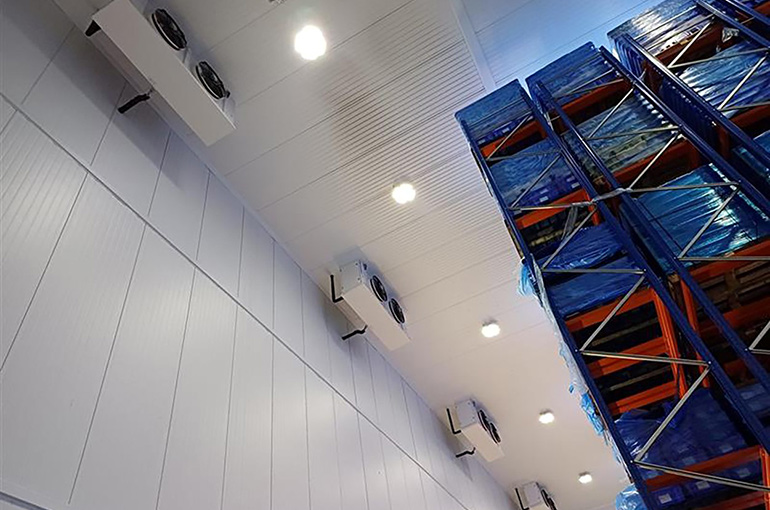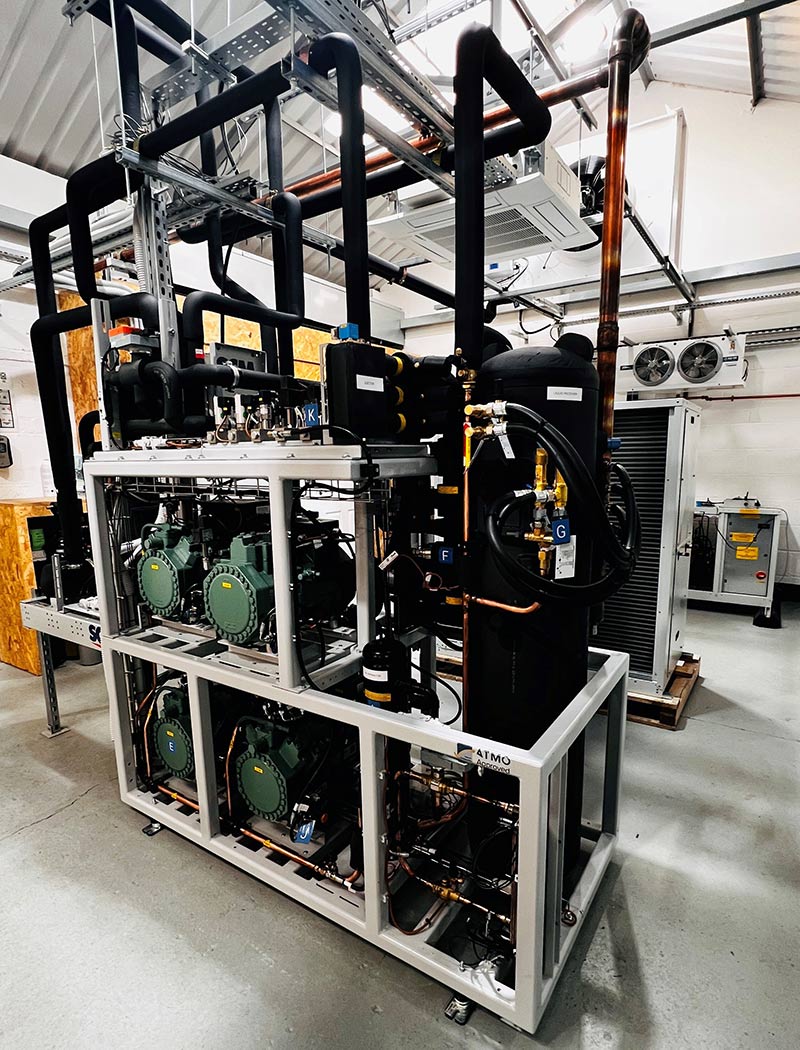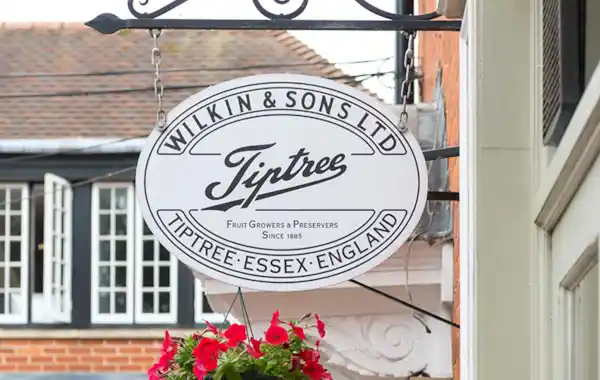01 July 2025
|
Teams from across wholesale group Beijer Ref UK & Ireland helped contractor Adcock Refrigeration and Air Conditioning to deliver an award-winning CO₂ plant installation for historic jam manufacturer Wilkin & Sons in Essex.
All equipment was supplied and specified by Beijer’s FridgeHUB team, backed by onsite support during installation and commissioning from its HVACR field engineers. Specialist training came via the Beijer Ref Academy, and there was further key input from manufacturer SCM Frigo (also part of the Beijer Ref group of companies).
Comprising two SCM Frigo PNC-MWT 60kW LT CO₂ Booster Packs and two Güntner GACV CX 063.1JE 30kW evaporators for each pack, the installation was recognised as Refrigeration Project of the Year in the 2025 National ACR & HP Awards.

SCM Frigo CO₂ Booster Packs at Wilkin & Sons in Essex
This installation represented a first CO₂ (R744) project for Adcock, who said the support received gave them the confidence to choose a system operating on a natural refrigerant with minimal environmental impact (GWP < 1, ODP 0). Following the planning and specification phases, the company’s engineers completed CO₂ training at the Beijer Ref Academy while the equipment was being manufactured.
Paul Parfitt, Director at Adcock, said: “The FridgeHUB team gave us the confidence to proceed with our first CO₂ project and the technical support from SCM in the UK provided crucial back-up. Being able to attend the Beijer Ref Academy in Wetherby was a big plus point for us when deciding where to place our business. FridgeHUB and the Academy certainly added value to the project.”
Project overview
Wilkin & Sons has been producing quality jams and marmalades since 1885 and is perhaps best known for the Tiptree range of fruit preserves named after its Essex home. The existing HFC-based screw pack system at the factory was showing its age, with persistent leaks resulting in excessive service and repair expenses. Urgently needing to build reliability into its freezer rooms, a temporary glycol-based system had been installed until a permanent solution was found.
Four existing systems, screw packs each delivering 30kW of capacity at -31°C SST, required replacement. Given the limited space available, the new plant needed to be installed outdoors and, as the system called for a large low temperature (LT) duty, the equipment footprint was identified as a potential issue. The design process considered several options for splitting the load between smaller units and larger packs, ultimately leading to a focus on a refrigerant that would future-proof the site.
It was important to create a resilient system by distributing the load efficiently across multiple units while also accounting for a high temperature (HT) tempering facility in a planned second phase of the project.
FridgeHUB and SCM Frigo were able to specify a solution featuring SCM’s advanced LT Booster systems, including integrated gas coolers. This eliminates the need for separate gas cooler installations, thereby reducing both installation costs and downtime. Selecting the 60kW LT solution, which offered significant cost savings compared to utilising four smaller units while maintaining resilience, also ensured stability amid varying load conditions.
Although the loads on site are stable, each unit provides 28-100% capacity control. This, and the use of two identical packs, means the site can also manage any future low load conditions required. The LT compressors (with inverter on the lead) cascaded to the HT compressors (with inverter on the lead), where heat is rejected with an onboard gas cooler.
SCM also incorporated options for a glycol plate heat exchanger for the future tempering room, eliminating the need for subsequent additional infrastructure. This solution maximised the available space while future-proofing the installation against evolving client needs. The inclusion of specially coated fins on the gas cooler contribute to extending the lifecycle of the equipment, making it a robust choice for the client.

Two Güntner 30kW evaporators were used for each pack
Güntner GACV CX evaporators were chosen for their quality and reliability. They feature double-skinned drain pans and additional periphery heaters for the fans. The overall access provided by the design of the Vario coolers means that servicing the units, even at a high height (as these are), is easier than most designs. The effective defrost design was also an influencing factor.
Sustainable choice
While some of the HFO-based systems considered presented a lower initial capital cost, they also came with the potential for higher operating costs and regulatory restrictions. A2L options were also examined but limitations on charge sizes and pipe runs made them unsuitable for the site’s needs. Finally, ammonia was considered but dismissed on the grounds of cost and flammability.
Although the initial energy consumption was projected to be 5% higher compared to traditional systems, the integration of a plate heat exchanger for future tempering rooms ensured long-term energy efficiency gains.
Michal Wiecaszek, Head of FridgeHUB, said: “We firmly believe that this project represents a model for successful refrigeration system upgrades: an efficient, sustainable, and expertly executed transition that directly addresses both present and future needs. The innovative approach to design, technology selection, and collaborative support sets a new benchmark within the industry.’’

An identical SCM Frigo pack was used to provide the Adcock team with specialist training at the Beijer Ref Academy








